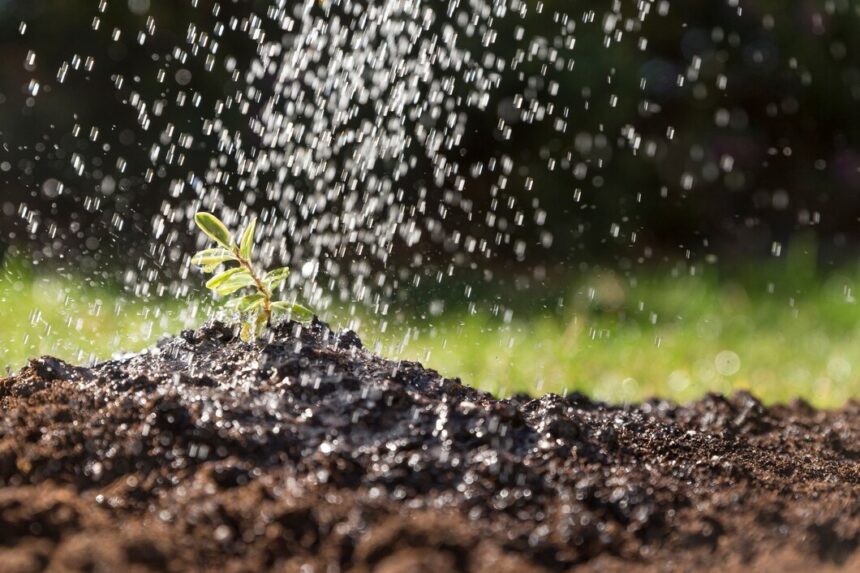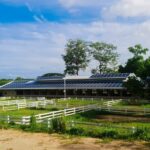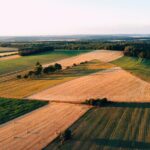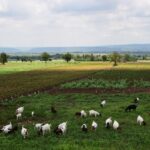Water scarcity is a significant challenge facing agriculture in South Africa, where erratic rainfall patterns and prolonged droughts are becoming increasingly common. In light of these challenges, it’s crucial for farmers to adopt water conservation techniques to optimize water use, improve crop resilience, and sustain agricultural productivity. Here are ten techniques that South African farmers can implement to conserve water on their farms:
1. Drip Irrigation:
Drip irrigation delivers water directly to the root zone of crops through a network of low-pressure tubing and emitters. This method minimizes water loss through evaporation and runoff, ensuring efficient water use while promoting healthy plant growth.
2. Mulching:
Applying organic or synthetic mulch materials around crop plants helps retain soil moisture, suppress weed growth, and reduce evaporation. Mulching also moderates soil temperature and prevents soil erosion, enhancing water infiltration and retention in the root zone.
3. Rainwater Harvesting:
Capturing and storing rainwater runoff from roofs, catchments, or surface water sources can supplement irrigation water supplies during dry periods. Rainwater harvesting systems range from simple rain barrels to larger storage tanks and reservoirs, providing an additional source of water for crops.
4. Conservation Tillage:
Conservation tillage practices, such as no-till or reduced tillage, minimize soil disturbance and maintain crop residues on the soil surface. This helps improve soil structure, moisture retention, and infiltration, reducing water runoff and erosion while conserving soil moisture for plant uptake.
5. Cover Cropping:
Integrating cover crops into crop rotations helps improve soil health, suppress weeds, and enhance water retention in the soil. Cover crops also reduce soil compaction, increase organic matter content, and promote beneficial soil microbial activity, contributing to overall water conservation efforts.
6. Crop Rotation:
Diversifying crop rotations with drought-tolerant or water-efficient crops can help optimize water use and minimize water demand during dry periods. Rotating crops with different water requirements also helps break pest and disease cycles, improving overall crop resilience and productivity.
7. Soil Moisture Monitoring:
Utilizing soil moisture monitoring tools, such as tensiometers or soil moisture sensors, allows farmers to track soil moisture levels in real-time and make informed irrigation decisions. By optimizing irrigation scheduling based on actual crop water needs, farmers can reduce water waste and improve water use efficiency.
8. Efficient Irrigation Scheduling:
Implementing efficient irrigation scheduling techniques, such as crop coefficient-based scheduling or evapotranspiration (ET) modeling, helps match irrigation applications with crop water requirements. This ensures that water is applied when and where it’s needed most, minimizing water loss and maximizing crop yield potential.
9. Water-Efficient Technologies:
Investing in water-efficient technologies, such as soil moisture monitoring systems, remote sensing technology, and precision irrigation equipment, can help farmers optimize water use and minimize waste. These technologies enable precise water application, targeted irrigation, and resource optimization, improving overall water management on the farm.
10. Water Recycling and Reuse:
Implementing water recycling and reuse practices, such as collecting and treating agricultural runoff or wastewater, can help conserve water resources and reduce reliance on freshwater sources. Treated wastewater can be used for irrigation, livestock watering, or non-potable agricultural purposes, reducing demand on finite water supplies.
By implementing these ten water conservation techniques, South African farmers can play a critical role in preserving water resources, enhancing agricultural sustainability, and adapting to the challenges of climate change. By optimizing water use efficiency, improving soil health, and adopting innovative water management practices, farmers can sustainably increase crop productivity, protect natural ecosystems, and secure the future of agriculture in South Africa. As stewards of the land, farmers have a vital role to play in safeguarding water resources for future generations, ensuring a resilient and prosperous agricultural sector in the face of evolving environmental challenges.
Join 'Farmers Mag' WhatsApp Channel
Get the latest Farming news and tips delivered straight to your WhatsApp
CLICK HERE TO JOIN






